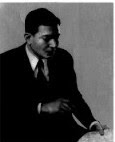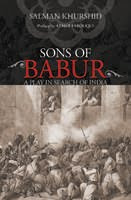The Emperor's 'Borrowed' Robe: 2
I borrowed Narang’s nice-looking book from him. I went through it within next four days. As I was going through this award-winning book I was extremely astonished to discover the fact that how valiantly, without having a second thought to his reputation, Narang had translated several chapters from the books by the Western interpreters without acknowledging the actual sources.
- Imran Shahid Bhinder
PART TWO OF THE INTERVIEW
When and how did you first find out about the plagiarism?
In 2005, I was enrolled for the Master of Arts in English Literary Studies at Birmingham City University (formerly known as University of Central England) to study contemporary trends in literary, social or cultural phenomenon, strictly in the Western context. Before I enrolled for the above course, I studied Post-modern epistemology privately and developed an enormous interest in the epistemological and sociological aspect of postmodernism, which is well known as post-structuralism.
Philosophy in general has always been a passion. I have been studying post-Cartesian Philosophy for the last sixteen years. For the first semester, I wrote two essays, one on great German philosopher Immanuel Kant’s extremely complex philosophy of aesthetics, and second on one of the foremost French psychologist Jacque Lacan’s theory of fragmentation of the self, deeply influenced by Ferdinand de Saussure’s linguistic theory. At that time, I had already studied Robert Scholes, Christopher Norris, Catherine Belsey, Terence Hawkes, Raman Seldon and so on.
A friend of mine came from Pakistan, had a huge book in his hand, which he had bought from Islamabad, by Gopi Chand Narang entitled Sakhtiyat Pas-e-Sakhtiyat aur Mashriqi Sheriyat. We exchanged thoughts about the epistemological dimensions of structuralism that can be located within the periphery of the highly systematic Kantian philosophy. I established that there is nothing new in Structuralism; it is not even an extension, on any level, of Kantian transcendental philosophy. Structuralism of Ferdinand de Saussure is just a linguistic description of Kantianism.
He suggested to me to read Narang’s book because he believed that Narang had taken an original angle. According to his reading of Narang’s controversial book, structuralist philosophy and Derrida’s deconstructive reading of the whole history of western metaphysics had absolutely rejected the entire philosophical tradition. Moreover, Narang, according to him, had shown it. I was inquisitive to learn more about structuralism but this time through Narang’s reading of structuralist theory.
I borrowed Narang’s nice-looking book from him. I went through it within next four days. As I was going through this award-winning book I was extremely astonished to discover the fact that how valiantly, without having a second thought to his reputation, Narang had translated several chapters from the books by the Western interpreters without acknowledging the actual sources.
In all my previous articles, I have written extensively about Narang's plagiarism. I would like to enunciate here few important aspects. English readers will certainly be astonished to know about this strange episode. The first part of Narang’s award winning book entitled Sakhtiyat Pas-e-Sakhtiyat aur Mashraqi Sheriyat, in which Narang seems to have discussed structuralism and post-structuralism, consists of exact three hundred pages.
Narang and all the members of his literary company, who have been ingredients of Narang’s award related conspiracy, cannot come up with twenty original pages. When I pronounce twenty original pages I do not refer to ideological, linguistic or sociological originality, I mean those twenty pages, which Narang has not plagiarized. Is anybody out there to prove it wrong? I would say no. As I have claimed that a substantial part of the book on western structuralism, Narang has awfully grabbed. It is now Narang’s or his well-wishers responsibility to break the silence and crack this enigma however.
COMING UP...
'NARANG THREATENED PUBLISHER OF JADEED ADAB'


Narang is the biggest thug entered in Urdu criticism just to pervert the urdu students from the genuine issues.
ReplyDeleteVery good interview. Giving a list of Books is good because now everyone can easily compare or contradict. Whats does Mr. Narang say? What are the Badshahs of urdu literature doing? Maybe they have also borrowed their robe. -- Ebrahim Musa, New Jersey
ReplyDeleteThis interview is uncovernig the truth of Urdu Literary culture.I am very glad that an interview like this has been published, because Mr Bhinder has given the evidence, for people who want to dig out reallity by themselves.
ReplyDeleteAnchal.Afzal
ReplyDeleteLyndon Humanities College in Solihull, UK
I am a GCSE student in Lyndon Humanities College in Solihull, UK. I am interested in Literary issues and politics and that’s how I came across this subject; I read the interview on this website, “The World of Urdu”, of Imran Shaid Bhinder which made me more curious, So I done some more research to this ‘shocking’ subject. I read this article by Bhinder, ‘Gopi Chand Narang translator or author’ which was published in 2006, A well known person for his writing and theory’s and so much more, Dr. Gopi chand narang basically got all the fame and awards by copying from English and pasting it in Urdu. If a well known person like Dr. Gopi Chand Narang does plagiarism, what does that show to the youth of tomorrow? Because in my eyes it shows that it is the easiest way of getting ‘fame’. The only way no one knew until know about the plagiarism, because he did not publish it in English, if he did; he would publish the same old words from all the famous writers!
I have to add even though this may be out of the subject, is that ‘Derrida’s books’ are made to confuse people so no one can totally argue back or disagree with the valid reason. If a person does not understand the language that derrida is using, how is anyone going to disagree and prove their point; which I think is the whole game to his writing. Who ever understands his theory would come to this point ‘Deidra purposely created confusion so no one can disagree with his theory’s only because no one understand it, that’s the only reason people don’t disagree if he wrote the same words in a simpler form it would make more sense which I think ‘Derrida’ does not want! I have not read ‘derrida’ academically or personally, I got this point of view from Imran Bhinder’s articles, which have been published in many websites, any way to come back to my point about Disgusting act of (Dr. Gopi chand narang) plagiarism, the articles and arguments now discussed in English on websites. Now this is not only a big topic in Asia it is a big topic to people who everywhere who can read English And Urdu, not only some countries in Asia are victim of war and poverty, Now there are going to be bad accusations about clean writers of Urdu.
[email protected]